“Teaching online requires that even experts relearn how to teach”, says Liza Girgis – a student currently completing her MA in Spanish in our Department. Faced with the intimidating prospect of being in front of a classroom for the very first time and making her debut as a teaching assistant in a remote virtual tutorial, she jumped at the opportunity to enroll in the teaching certification program offered by our Department in collaboration with the Universidad de Salamanca in Spain.
Samuel Jambrović, a second-year PhD student, agrees: “It hasn't been easy adjusting to teaching online, but I'm grateful for the active stance our department has taken towards enhancing our digital literacy. Last summer (2020), it held a monthlong series of training sessions and workshops, and this term (Winter 2021), it sponsored our participation in a teaching certification program through the University of Salamanca. Though many of us hope to go back to in-person classes soon, nothing is certain, so it's important to take advantage of these opportunities to become better instructors no matter the delivery method.”
Prof. Juan Carlos Rocha Osornio, our Spanish Language Coordinator, facilitated the partnership between our department and Cursos Internacionales at the Universidad de Salamanca (USAL). Rocha Osornio, despite being a seasoned language instructor, had previously enrolled on his own in a course offered by USAL in preparation for the start of the 2020-21 academic year. Due to all the changes resulting from COVID-19, he was looking for a fresh perspective on the world of online teaching and learning. The course, “El camino del profesor de ELE: Retos, pautas y herramientas”, offered insights into creating dynamic activities for online teaching.
After leading the Digital Pedagogy Community of Practice and learning more about the challenges our teaching staff faced, Prof. Rocha Osornio reached out to José Miguel Sánchez Llorente and Alberto Buitrago Jimenez at USAL and asked them to tailor a teaching certificate program according to our instructors’ needs. A comprehensive bespoke version of the course was made available to all teaching assistants, course instructors and faculty members currently teaching a Spanish language sequence course. In total, twelve members of our teaching staff completed the certificate, which was fully funded by our department.
Samuel Jambrović shared his experience taking the course: “It was intense, introducing participants to the latest advances in online pedagogy and challenging them to design their own activities. Having the chance to be a student in an asynchronous classroom was particularly eye-opening; I learned firsthand the kinds of activities that are effective (and not so effective) and now have a deeper appreciation for the importance of feedback in a virtual environment. At the start, it seemed to me as though the instructors were almost too enthusiastic in their comments on our assignments, but I soon realized how motivating this type of communication can be in the absence of face-to-face contact. It's certainly something I've tried to emulate in my own teaching since completing the course.”
Liza Girgis appreciated that the course gave her the tools “to adapt my lessons according to the needs of the students. It also helped me understand why the students in the tutorials I lead engage differently with the material and each other. I also learned about gamification: I never imagined games could be so didactic!” Upon further reflection, Liza commented that “I used to think that one could eventually master how to teach a language, reaching an end of the road so to speak. Now, I know that teaching languages is a path that never ends.”
The Department aims to offer this training certificate to all our incoming teaching staff in support of their teaching journey.


